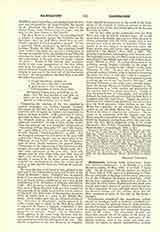

Haimhausen (corrupt form, AYMAUSEN), KARL VON, German missionary; b. at Munich, of a noble Bavarian family, May 28, 1692; d. in Chile, April 7, 1767. On October 20, 1709, he entered the Society of Jesus, and, in 1724, went as a missionary to Chile. He was professor of theology and for many years rector of the Collegium Maximum at Santiago. Chile having been constituted an independent province of the order in 1624, Father Haimhausen was made provincial procurator, master of novices, and instructor. In these capacities he won such high esteem that even the Spanish bishop and the viceroy chose him for their confessor in spite of the fact of his being a foreigner.
Haimhausen completed the magnificent college church in Santiago, built a novitiate establishment and two houses for spiritual retreats, with churches attached to them, and rendered most valuable service in promoting the economic and industrial development of the colony. The abundance of gold and silver that poured out of the mines of the newly acquired countries had ruined the industries of the mother country, since it was easier and more convenient for Spain to import manufactured articles from abroad and pay for them in specie (R. Cappa, “Estudios criticos acerca de la domination espanola en America“, XIII, 169, and passim). As a result, art and industry in the colonies decayed. Their regeneration was due especially to the German and Dutch missionaries who went thither at the end of the seventeenth century. Haimhausen founded an arts-and-crafts school at Calera, near Santiago, himself procuring the proper assistance from Germany. Here the ateliers of the bell-founder, the watchmaker and goldsmith, the organ-builder and the furniture maker, and the studios of the painter and sculptor turned out monuments of the arts and crafts such as Chile had hitherto never seen.
A. HUONDER

